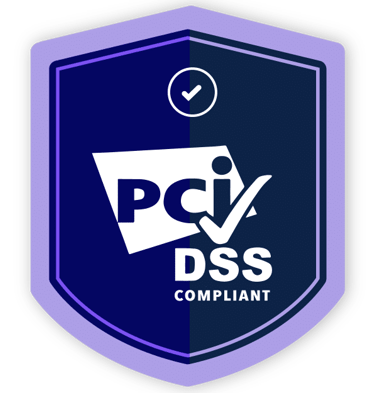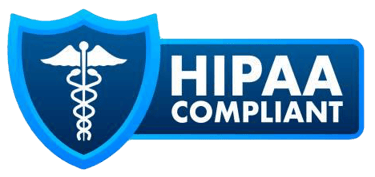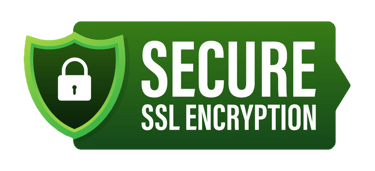10 Policies Every Home Health and Hospice Must Review Annually
Stay compliant and proactive—these 10 policies every home health and hospice agency must review annually to meet Medicare Conditions of Participation and safeguard operations.
In the ever-evolving environment of home health and hospice care, agencies must stay vigilant in maintaining compliance with the Centers for Medicare & Medicaid Services (CMS) Conditions of Participation (CoPs) and other regulatory requirements. As a Medicare-certified provider, your organization not only needs to document and implement policies—but also to review them at least annually to ensure they remain current, effective, and reflective of best practices. This article outlines 10 key policies that every home health and hospice agency should review annually, with guidance on why each is critical, what to look for in the review process, and how to strengthen your policy framework.
1. Patient Rights and Responsibilities Policy
Why this matters:
Respecting and protecting patient rights is foundational under the Medicare CoPs. For hospice care, for example, the CoP for patient rights (§418.52) sets forth the standard that patients must be informed of their rights and that the hospice ensures respect for property and person.
Annual review checklist:
Confirm the policy clearly lists all patient rights (e.g., confidentiality, informed consent, advance directives, the right to refuse services).
Ensure your patient documentation includes notices of rights provided in both written and verbal form.
Review how your agency handles grievances and appeals, and ensure that the escalation procedure is current.
Verify that the policy references current state and federal regulations and is clearly communicated to patients, families, and staff.
Enhancement tip:
Include case examples or scenarios in staff training to illustrate rights in action, and ensure staff competency by annual acknowledgement.
2. Initial and Comprehensive Assessment Policy (Home Health & Hospice)
Why this matters:
For home health agencies, the CoPs (§484.30-.55) require a comprehensive patient assessment prior to furnishing services, and maintenance of such assessments. For hospices, CoP §418.54 requires an initial assessment by an RN within 48 hours of election and a comprehensive assessment within five calendar days.
Annual review checklist:
Confirm timeframes are accurate (e.g., within 48 hours for hospice initial assessment, no later than five days for comprehensive).
Ensure the assessment policy defines who performs each step (RN, interdisciplinary group) and outlines the content (physical, psychosocial, emotional, spiritual).
Review how the policy addresses reassessment when a patient’s condition changes and how those changes trigger updates.
Check documentation templates and EMR workflows for alignment with policy.
Enhancement tip:
Incorporate triggers for reassessment (e.g., hospital readmission, decline in functional status) and schedule a mock audit of assessment timing.
3. Plan of Care / Interdisciplinary Group (IDG) Coordination Policy
Why this matters:
Effective care planning and coordination are essential for meeting patient needs and regulatory requirements. For hospice, CoP §418.56 covers the IDG, care planning and coordination of services. For home health, care planning falls under the CoPs covering Services Furnishing of Services.
Annual review checklist:
Confirm who comprises the IDG and how often the team meets.
Ensure the policy outlines how the plan of care (POC) is developed, updated, communicated with the patient/family and measures outcomes.
Check that the policy requires measurable outcomes, identification of interventions, frequency and scope of services, and documentation of patient/family understanding and consent.
Enhancement tip:
Have a sample POC audited to verify that measurable outcomes were documented and achieved or revised accordingly. Train staff on how revisions are triggered.
4. Quality Assessment and Performance Improvement (QAPI) Policy
Why this matters:
Both home health and hospice providers are required under CMS regulations to have an ongoing performance improvement program. For hospice, CoP §418.58 defines the QAPI program scope, data, activities, and executive responsibilities.
Annual review checklist:
Verify that your QAPI policy outlines the scope (agency-wide), data collection processes (clinical, operational, patient satisfaction), priority areas, and performance improvement projects (PIPs).
Confirm clear assignment of leadership responsibility (e.g., executive committee, compliance officer).
Ensure the policy covers monitoring, analysis, implementing corrective actions, and evaluating effectiveness.
Enhancement tip:
Set an annual cycle for selecting one new PIP, review last year’s project effectiveness, and prepare for documentation ahead of surveys.
5. Infection Prevention and Control Policy
Why this matters:
Infection control remains a high-risk area for home health and hospice agencies and is a key element of compliance. For hospice, CoP §418.60 focuses on infection control standards. Home health agencies likewise must have policies to minimize risk.
Annual review checklist:
Confirm the policy includes standard precautions, transmission-based precautions, hand hygiene, environmental cleaning, and outbreak management.
Ensure there are provisions for staff education and competency, tracking of infections/ incidents, and corrective action protocols.
Check alignment with current CDC/OSHA guidance and any state health department requirements.
Enhancement tip:
Conduct a tabletop exercise of an infectious outbreak scenario (e.g., influenza, COVID-19 variant) and document staff readiness.
6. Personnel Qualifications, Training and Competency Policy
Why this matters:
Providers must ensure that all personnel meet licensure/credentialing requirements and receive ongoing training and competency evaluations. For hospice, CoP §418.114 details personnel qualification standards. National Alliance for Care at Home+1
Annual review checklist:
Confirm policy addresses hiring/licensing/credentialing, orientation, ongoing training, competency assessment and documentation.
Ensure that roles for home health/hospice (skilled nurse, aide, therapist, social worker, volunteer) are included with job-specific competencies.
Review that the policy specifies periodic refresher training (e.g., annually) and how records are maintained.
Enhancement tip:
Include new regulatory updates in annual training (e.g., changes in CoPs, updated CMS interpretive guidelines) and make sure staff sign off.
7. Safe Medication Management and Supervision Policy
Why this matters:
Medication management is a common survey deficiency area and is integral to both home health and hospice services. Proper policies reduce risk of medication errors, adverse events, and non-compliance.
Annual review checklist:
Ensure policy covers ordering, administration, storage, monitoring, reconciliation, and patient/caregiver medication education.
Confirm supervision and oversight mechanisms for high-risk medications, controlled substances, and patient-administered drugs (especially in hospice).
Verify documentation of medication reviews, adverse event tracking, and corrective actions.
Enhancement tip:
Review last year’s medication error/near-miss data and update the policy to address identified trends. Include caregiver education protocols for hospice patients handling medications at home.
8. Emergency Preparedness and Disaster Recovery Policy
Why this matters:
Regulatory requirements and accreditation standards both emphasize the need for emergency preparedness, continuity of operations, and risk assessment. For home-based care, readiness is critical for maintaining services and patient safety.
Annual review checklist:
Ensure policy includes hazard vulnerability analysis (HVA), emergency response plan, continuity of operations plan (COOP), communication protocols, staff training, and documentation of drills/exercises.
Confirm that patient evacuation/transportation and alternate care site strategies are included.
Review crisis staffing, supply chain disruptions, and pandemic response readiness.
Enhancement tip:
Schedule at least one full-scale drill annually (or simulation) and document lessons learned, policy modifications, and staff participation.
9. Privacy, Security and Confidentiality (HIPAA) Policy
Why this matters:
Protecting patient information is vital—both for compliance under the Health Insurance Portability and Accountability Act (HIPAA) and for maintaining trust. Agencies must have policies to safeguard electronic and paper records, ensure secure communications, and handle breaches.
Annual review checklist:
Confirm policy addresses access controls, staff authorization levels, patient consent, breach reporting, secure transmission of data, and mobile device security.
Ensure the policy is aligned with current HHS OCR guidance and your state’s privacy laws.
Review staff training and documentation of acknowledgements.
Enhancement tip:
Perform a mock-breach scenario and audit how the policy handles breach notification, mitigation, and reporting. Update policy accordingly based on findings.
10. Billing, Coding, and Fraud & Abuse Compliance Policy
Why this matters:
Accurate billing and coding are essential for Medicare reimbursement and avoidance of fraud/abuse sanctions. Home health agencies must meet coverage criteria for the benefit, and hospice agencies must ensure correct election, recertification and documentation. For home health, see Medicare home health services requirements.
Annual review checklist:
Ensure policy addresses documentation requirements, medical necessity, homebound status (where applicable), coding accuracy, claim submission, and compliance with the Office of Inspector General (OIG) standards.
Include mechanisms for internal auditing, self-reporting of findings, corrective action plans, and staff training on fraud/abuse, kickback laws, and false claims.
Confirm policy references current CMS and OIG guidance and addresses renewal of contracts with outside billing/coding vendors.
Enhancement tip:
Schedule periodic internal audits or engage an independent consultant to perform a mock audit of claims and documentation to identify vulnerabilities.
Best Practice Process for Annual Policy Review
To maximize the value of your review, implement the following best practice steps:
Designate a policy review team – include compliance/quality officer, clinical director, operations manager, and risk manager.
Maintain a policy inventory – list all policies, last review dates, revision history and next scheduled review.
Set a consistent annual review schedule – align with fiscal year or survey cycle.
Use a structured review worksheet – assess for regulatory updates, operational changes, staff feedback, incident data, and best practice developments.
Document the review – include date, reviewers, key changes, training follow-up, and management approval.
Train staff on revisions – ensure no policy changes occur without corresponding staff acknowledgment and competency refresh.
Archive previous versions – maintain historical records for survey/ audit evidence of compliance.
Link policies to operational practice – ensure that what is documented in policy actually reflects day-to-day practice, and audit for alignment.
Why This Matters Now
With regulatory scrutiny and survey activity remaining high, home health and hospice agencies cannot afford to treat policy review as a perfunctory annual task. Surveyors from CMS and state agencies frequently cite deficiencies in assessment timing, care planning, QAPI documentation, infection control, personnel competencies, and billing practices. cc.achc.org A proactive annual review of these ten key policies strengthens your compliance posture, supports quality of care, mitigates risk, and positions your agency as a best-practice provider.
Conclusion
Annual policy review is not just an administrative exercise—it is a strategic risk management and quality assurance tool. By systematically reviewing the ten foundational policies outlined above, your home health or hospice agency will be better equipped to meet the Medicare Conditions of Participation, align with regulatory expectations, and deliver safe, effective care.
If you’d like expert assistance in reviewing or updating your policy set, conducting mock surveys, or creating custom compliance toolkits (checklists, audit forms, training modules) tailored for home health and hospice, partner with HealthBridge. We specialize in compliance consulting and management solutions designed for agencies like yours—supporting you from policy development through implementation and audit readiness.







